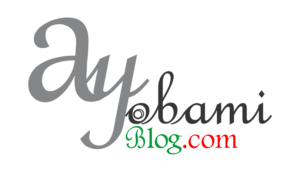Nigeria’s political landscape has witnessed a major shake-up as two of its main opposition leaders, Atiku Abubakar and Peter Obi, have joined forces under the African Democratic Congress (ADC) to challenge President Bola Tinubu and his ruling All Progressives Congress (APC) in the 2027 elections.
Atiku, a former Vice President and candidate of the Peoples Democratic Party (PDP) in 2023, and Peter Obi, former Anambra State Governor and Labour Party (LP) candidate, announced their defection to the ADC after parting ways with their respective parties. This move marks one of the biggest realignments in Nigerian politics since the return to democracy in 1999.
The new coalition also includes prominent figures such as former Senate President David Mark, former PDP chairman Uche Secondus, ex-Kaduna State Governor Nasir El-Rufai, and former Transport Minister Rotimi Amaechi, signalling a formidable opposition block ahead of 2027.
Why This Alliance Was Formed
The decision follows extensive negotiations aimed at preventing a repeat of the 2023 election outcome, where Tinubu won with only 37% of the vote, while Atiku secured 29% and Obi 25%, effectively splitting the opposition.
Political analyst Shehu Iliyasu noted, “Atiku and Obi believe that if they had teamed up in 2023, they could have defeated Tinubu. This coalition is an attempt to correct that mistake.”
Potential Presidential Ticket
Although the ADC has not officially declared its candidates, speculations suggest Atiku, 78, will run for President for a fifth time, with 63-year-old Obi as his running mate, replicating their 2019 partnership under the PDP.
However, Obi’s supporters are cautious, as many believe he should not play second fiddle after raising LP’s profile significantly in 2023. In contrast, Atiku’s camp insists his status as a former Vice President makes him the natural flag bearer.
About the ADC
The African Democratic Congress is not a new party. It was established in 2005 as the Alliance for Democratic Change before adopting its current name upon registration with the Independent National Electoral Commission (INEC).
Despite not being one of Nigeria’s major parties, the ADC has nationwide structures and secured fifth place in the last presidential election. Its reach will be further strengthened by the financial backing and political influence of its new members.
Tinubu’s Position and APC’s Reaction
The APC has endorsed President Tinubu for a second term when his current tenure ends in May 2027. While questions about his health persist, the presidency maintains he is fit for office.
APC Acting Chairman Ali Bukar Dalori dismissed the coalition’s impact, saying, “Nobody is talking about a coalition except in Abuja. When they lose, they will leave the country.”
Impact on PDP and Labour Party
Both PDP and LP have rejected joining the ADC coalition. For the Labour Party, losing Obi is a significant blow, as he single-handedly elevated its national relevance. Analysts predict it will struggle to recover in the near term.
The PDP, meanwhile, has lost several heavyweight members, weakening its position as Nigeria’s main opposition party. Analyst Iliyasu Hadi observed, “With the calibre of politicians moving to the ADC, it’s only a matter of time before it overtakes the PDP as Nigeria’s primary opposition party.”
Despite these defections, PDP and LP still control 11 states, giving them leverage if their governors remain loyal and do not defect before 2027.
What Lies Ahead
As Nigeria heads towards another decisive election in 2027, the formation of this new opposition alliance sets the stage for a fierce battle against the incumbent President Tinubu. Whether Atiku and Obi can maintain unity and effectively challenge the ruling party remains to be seen.
Credit: BBC
Discover more from Ayobami Blog
Subscribe to get the latest posts sent to your email.











